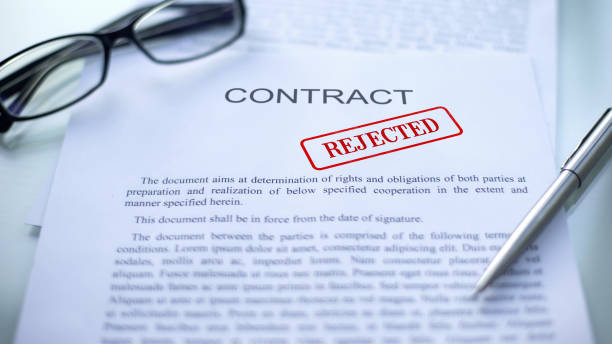Steering Clear of Contractual Quicksand: Common Pitfalls in Contract Drafting and How to Avoid Them
Drafting contracts is a vital competence that can strengthen or shatter business relationships and legal agreements. Knowing what not to do—and what to do instead—is essential for creating contracts that are clear, enforceable, and equitable. “Common Pitfalls in Contract Drafting” explores this murky area and attempts to shed light on it.
The Treacherous Terrain of Contract Drafting
Contracts are the backbone of business relationships, establishing the rights, obligations, and expectations of parties involved. Yet even businesses that do everything right can find themselves mired in misunderstandings and disputes—sometimes even facing a courtroom full of angry lawyers. Why does this happen? Poor contract drafting is often the culprit.
Pitfalls to Avoid in Contract Drafting
Ambiguity: The Silent Saboteur
One of the most pernicious pitfalls in contract drafting is ambiguous contract language. It can threaten the very essence of the agreement and cause disputes that are expensive and time-consuming to resolve. Here are several important aspects to mull over.
- Indistinct or unclear language: The use of imprecise words or terms that can be understood in many different ways in contract drafting may cause confusion and disagreement between parties.
- Small on the surface, but legally loaded, are the choices of words: Even slight variations in vocabulary can have big legal consequences. For instance, there’s a world of difference between saying that one party “shall” do something, as opposed to saying that one party “will” do something.
- The importance of clarity and precision: A contract should contain words that are selected with care, that exactly convey what is intended without leaving room for any other interpretation.
“The contrast between the correct word and the nearly correct word is the contrast between lightning and a lightning bug.” – Mark Twain
To prevent misunderstanding, those who draft contracts should:
- Utilize straightforward and exact wording.
- Key terms should be defined explicitly.
- Ensure that several people review the contract to catch possible misinterpretations.
Unrealistic Expectations: A Recipe for Disappointment
When you set expectations that can’t possibly be met, it will almost certainly lead to some combination of unhappy, frustrated people and/or broken relationships that might even result in some people calling their lawyers and preparing for action. Some common issues that lead to this scenario include:
- Setting unachievable goals and overpromising: Trust and reputations can be damaged when individuals are unable to meet lofty expectations.
- Unrealistic budgets and timelines: When potential delays and cost overruns are not taken into account, they can create friction between the parties involved.
To establish achievable expectations in contracts:
- Research thoroughly and conduct due diligence.
- Talk freely with every part involved about what can and can’t be done.
- Make provisions for adjusting timelines or deliverables when you are faced with unforeseen circumstances.
- Utilize clear measurements and standards to gauge output.
Overlooked Details: The Devil in the Fine Print
Insignificant mistakes in contract writing can carry big penalties. Be mindful of:
- Leaving out important words and definitions: Not defining key terms or not including crucial clauses can result in contracts that are open to interpretation.
- Implicit arrangements and unspoken provisions can end up being deeply misunderstood because they rest on assumptions about what everyone thinks they ought to agree on.
- Significance of careful review and revision: It is critical to proofread and to review at least two times in order to ensure that all details have been caught.
Read Also: A Corporate Guide to International Arbitration
Frequently Asked Questions (FAQ)
Can contracts be written in plain language for non-lawyers?
Yes, contracts can be written in plain language for non-lawyers. Actually, it is recommended that contracts be written in such a manner and at such a level that all parties to the contract understand what they are signing. When a contract party cannot comprehend the document, it potentially leads to legal issues down the road.
Not having a dispute resolution clause can lead to several issues:
- Default Litigation: Without a stipulated method for resolving disputes, parties tend to go the litigation route by default, which can be very costly and time-consuming.
- Choice of Law Issues: In the absence of a dispute resolution clause, the parties might also waste time and money figuring out which jurisdiction’s laws apply to their situation.
- No Control Over the Process: When you don’t prescribe a process, you lose control over it. Not having a dispute resolution clause means ceding control of the dispute resolution process to the mechanism of last resort: the courts.
Can contracts be amended after signing?
Yes, a contract can be amended after it has been signed, provided all parties agree to the changes. It’s best to include a clause in the original contract that outlines how amendments can be made.

